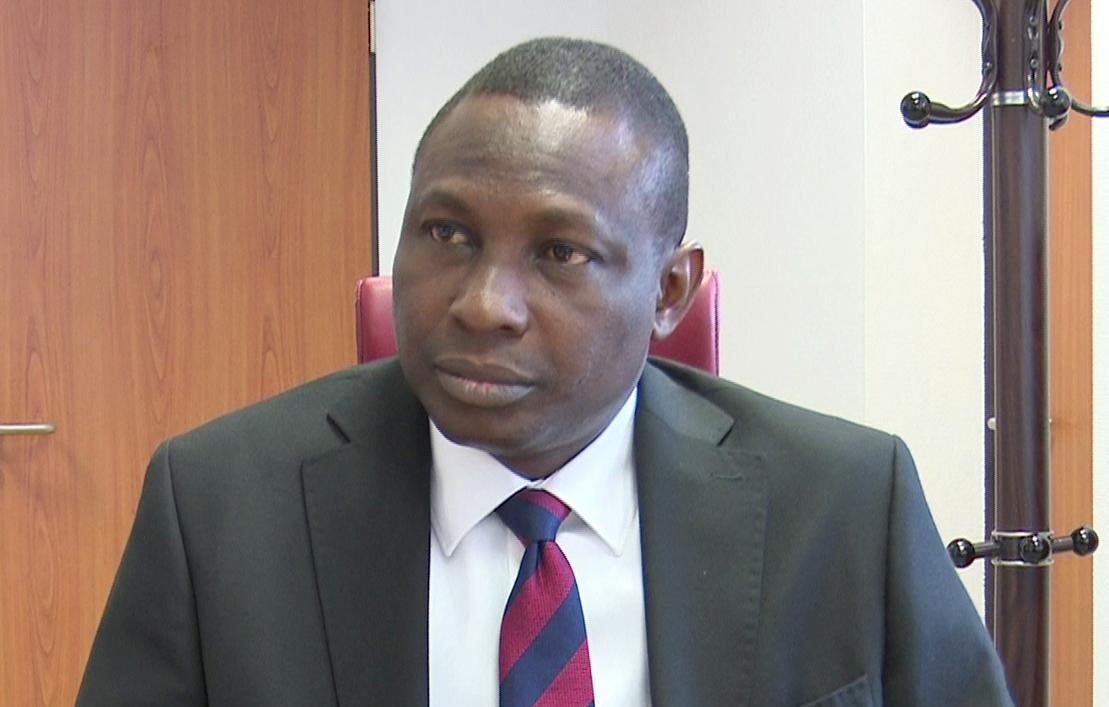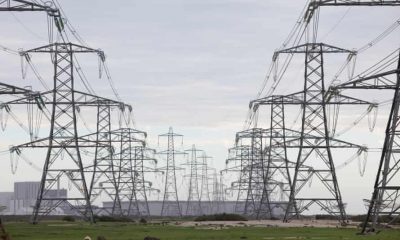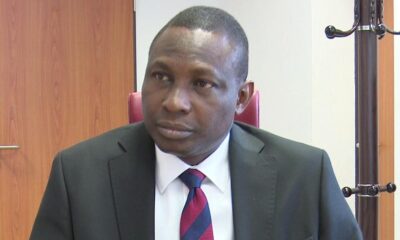News
EFCC Names Those Behind Grid Failures (Video)

The chairman of the Economic and Financial Crimes Commission (EFCC), Ola Olukoyede, has pointed fingers at corrupt contractors for the frequent collapses of Nigeria’s national power grid.
According to Olukoyede, these contractors use substandard equipment in their projects, which has contributed to the power grid’s repeated failures. So far this year, the grid has collapsed 10 times, with the most recent failure occurring on November 7.
The Transmission Company of Nigeria (TCN) has attributed the grid instability to a series of line trips and generator failures. Meanwhile, Adebayo Adelabu, the Minister of Power, has stated that the constant system failures are inevitable due to the outdated state of the country’s power infrastructure.
During an oversight visit to the EFCC headquarters on Tuesday, Olukoyede addressed the House of Representatives Committee on Financial Crimes. He revealed that the EFCC is already investigating issues within the power sector. “As I am talking to you now, we are grappling with electricity,” he said. “If you see some of the investigations we are carrying out within the power sector, you will shed tears.”
Olukoyede further explained that some contractors, who were awarded contracts to supply electricity equipment, intentionally use cheaper and inferior materials. He gave an example: “Instead of using what they call 9.0 gauge, they will go and buy 5.0.” As a result, the equipment fails frequently, causing the grid to trip, overheat, and ultimately collapse. “Every time you see the thing tripping off, the thing gets burnt, and all of that, it falters and it collapses. It’s part of our problems,” he said.
The EFCC chairman also expressed frustration with the slow pace of infrastructure development in the country. He revealed that over the past 15 to 20 years, less than 20 percent of capital projects have been fully implemented. “In the past one year, we have had cause to establish a new directorate called fraud risk assessment and control (FRAC),” he said. The directorate’s mandate is to work with the Office of the Accountant-General to oversee financial releases, monitor the implementation of projects, and ensure better execution.
Olukoyede emphasized that Nigeria’s development is being hindered by the lack of progress on key infrastructure projects. “If we don’t do that, how do you want to have infrastructural development? How do you want to grow as a nation?” he questioned.
He added that the EFCC’s goal this year is to work with the National Assembly to ensure at least 50 percent of capital projects are executed. “If we do 50 percent, we will be fine as a nation,” Olukoyede said, highlighting that tackling the slow pace of project implementation is crucial for the country’s progress.
Send Us A Press Statement Advertise With Us Contact Us
And For More Nigerian News Visit GWG.NG






